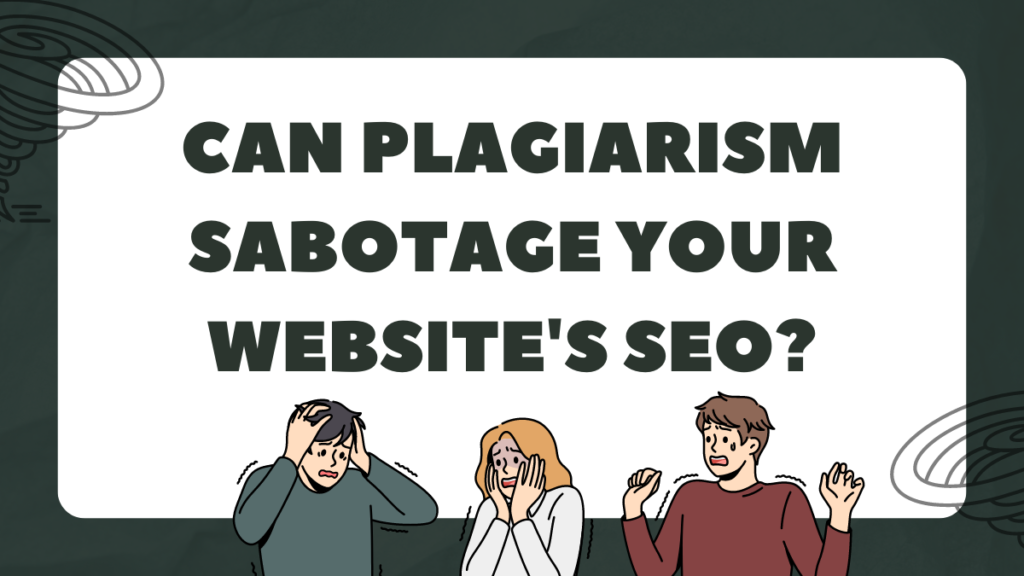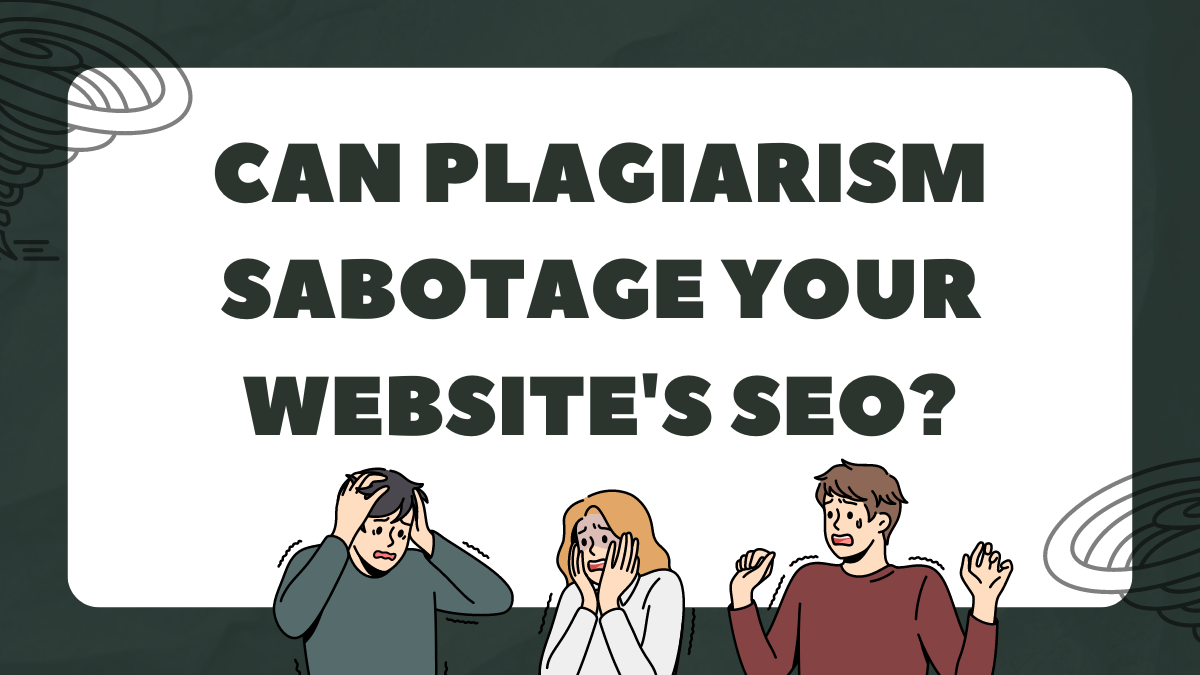Have you ever considered the impact of plagiarism on your website’s search engine ranking? In this age of content overload, it might seem tempting to take shortcuts by copying and pasting text from other websites. But beware! Plagiarism can have serious consequences for your website’s visibility and overall success. Let’s dive into how plagiarism can damage your SEO and, most importantly, how to avoid it.
What is Plagiarism?
Put simply, plagiarism is the act of taking someone else’s work or ideas and presenting them as your own without proper credit. This can include copying text verbatim, paraphrasing without proper citation, or even presenting another person’s images or videos as your own.

How Does Plagiarism Affect SEO?
Search engines like Google place a strong emphasis on providing users with high-quality, original content. Here’s how plagiarized content can hurt your SEO:
- Duplicate Content Penalties: Search engines have sophisticated algorithms to detect copied content. If a significant portion of your website’s content is found to be plagiarized, your website could be penalized or even removed from search results entirely.
- Loss of Trust: Users who discover plagiarized content on your website are likely to lose trust in your brand. This can lead to higher bounce rates (people leaving your site quickly) and lower engagement, which can further harm your SEO.
- Negative Reputation: If your website is known for plagiarizing content, other websites may be less likely to link to you. A strong backlink profile (links from other reputable sites) is crucial for good SEO, so a negative reputation due to plagiarism can be extremely damaging.
How to Protect Your Website from Plagiarism
- Create Original Content: This is the most important and straightforward thing you can do. Invest time and resources into creating fresh, valuable content your audience will love.
- Cite Your Sources: Make sure to provide accurate citations and links whenever you mention someone else’s work. This shows respect for intellectual property and adds credibility to your own work.
- Use Plagiarism Checker Tools: There are many free and paid plagiarism checkers available online (e.g., Grammarly, Copyscape). Use these tools to scan your content before publishing to catch any potential issues.
- Teach Your Staff: If you have a group of writers, provide them the resources they require and emphasize the value of abstaining from plagiarism.
Example:
Let’s say you write a blog post about “the benefits of yoga” and copy a few paragraphs from another website without attribution. Google’s algorithms might detect this, which could prevent your blog post from ranking well in search results. Worse, your readers might notice the plagiarism, creating a negative impression of your website.
Personal Opinion
I firmly believe originality is vital for both ethical reasons and long-term success. It can be tempting to “borrow” content when you’re short on time, but the potential SEO consequences are too severe. Put in the extra effort to create unique content that stands out and establishes you as a trustworthy source of information.
FAQs
- Can I paraphrase content and avoid plagiarism? A: Paraphrasing can be tricky. You need to substantially rewrite the original text in your own words while still giving credit to the original source.
- What if I accidentally plagiarize content? A: It happens! Immediately remove the plagiarized content, contact the original author if appropriate, and use a plagiarism checker to ensure the rest of your content is original.
- Can I use images I find online? A: Always obtain proper permission or use images licensed for reuse. Search for Creative Commons images for a safer option.
- What’s the difference between plagiarism and copyright infringement? A: Plagiarism is an ethical issue, while copyright infringement is legal. Both can harm your SEO.
- How long does a Google plagiarism penalty last? A: The duration can vary. In severe cases, your site might be permanently de-indexed.
Summary
Plagiarism is a serious offense that can significantly damage your website’s SEO. Prioritize originality, cite sources rigorously, and use plagiarism detection tools to protect your online reputation.



